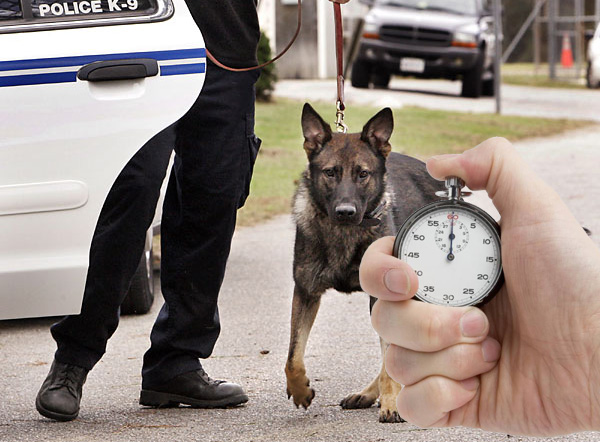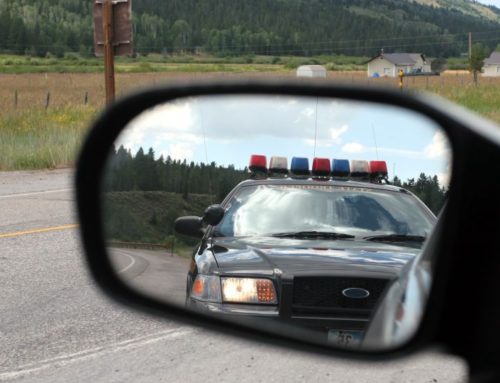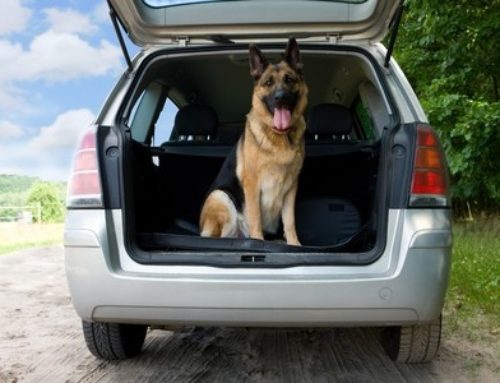A few days ago there was a new case decided in Illinois (State V Pulling published 6-17-2015) which I think is important for all K9 Handlers to read and understand. I predict there will be many rulings out of various jurisdictions that follow along these lines. Back in April I wrote a post about the US Supreme Court Decision Rodriguez V United States. If you haven’t read that case or post here is the link When can the police use a K9 to conduct a sniff. The gist of that ruling is summed up with “A seizure justified only by a police-observed traffic violation, therefore, “become[s] unlawful if it is prolonged beyond the time reasonably required to complete th[e] mission” of issuing a ticket for the violation. Id., at 407. The Court so recognized in Caballes, and we adhere to the line drawn in that decision.”
For those of you who don’t want to read the entire Illinois case I will give you the highlights.
– On 11-2-13 Illinois State Tropper Andrew Fratzke conducted a traffic stop for speeding
– Trooper made initial contact with the occupants and got their identifications and was told by driver that his license was suspended.
– Trooper then returns to his patrol car to run computer checks on the two occupants
– Trooper returns to violator vehicle, separates the occupants, and brings the driver back to his patrol car where he talks to him while in the patrol car.
– Trooper returns to violator vehicle to speak to the passenger Mr. Pulling and discovered conflicting stories about travel plans.
– Trooper then goes back to the driver and speaks to him again giving him a chance to clear up the now suspicious travel plans.
– When the inconsistencies in the stories could not be resolved the passenger was gotten out of the vehicle and a K9 Sniff was conducted on the car.
– The dog provided a positive alert to the vehicle and a subsequent search revealed crack cocaine.
At trial the Mr. Pulling filed a motion to suppress evidence and was denied. He then filed a motion to reconsider and upon second hearing the motion to suppress was granted.
The State then appealed the decision to the Appellate Court of Illinois and here is part of the resulting ruling.
“We are cognizant of the fact that the instant case differs factually with Rodriguez in that the free-air sniff occurred before the traffic stop had ended. However, this positional difference of the point at which the sniff occurs has no impact on our ruling. In Rodriguez, the Supreme Court stated that “[t]he critical question *** is not whether the dog sniff occurs before or after the officer issues a ticket *** but whether conducting the sniff ‘prolongs’ i.e., adds time to ‘the stop.’ ” Id. at ____, 135 S. Ct. at 1616. There is no dispute that the dog sniff added time to the total duration of the stop at issue. Moreover, the additional time was to conduct a check that was unrelated to this otherwise lawful traffic stop. See id. at ____ 135 S. Ct. at 1616. Consequently, we conclude that the free-air sniff prolonged the traffic stop and affirm the trial court’s ruling on defendant’s motion to suppress evidence.” Full text here:State V Pulling published 6-17-2015
So what does all of this mean?
The rule of thumb is that if a “Free Air K9 Sniff” is conducted during a traffic stop, absent particularized reasonable suspicion related to narcotics that justifies an extended seizure, the court will look at whether or not the act of conducting that sniff extended the time needed for the stop. If it is determined that the K9 sniff extended the stop, however slight, the courts will likely suppress the K9 results on the basis of the extended seizure.
When conducting a K9 sniff on a vehicle during a traffic stop where you do not have particularized suspicion of narcotics violation your best practice will be to conduct that sniff so that it does not extend the seizure or purpose of the stop.
Some examples would be but not limited to:
– K9 sniff conducted while waiting for dispatch to return information of requested checks for the vehicle, occupants, criminal history, Interstate Identification Index checks, or other requested authorized information.
– K9 sniff conducted while another officer is performing the duties of the traffic stop such as writing citations, warnings, etc.
Keeping these facts in mind it is important not only that K9 officers understand the legalities and importance of the timing of the sniff but also what factors are important to document in your reports. Be prepared both in your report and in your courtroom testimony to address this issue. You can bet your local defense attorney’s have already seen these rulings and will be bringing them to court for your cases.
Stay safe guys and let me know if I can help you in any way.
Clay











